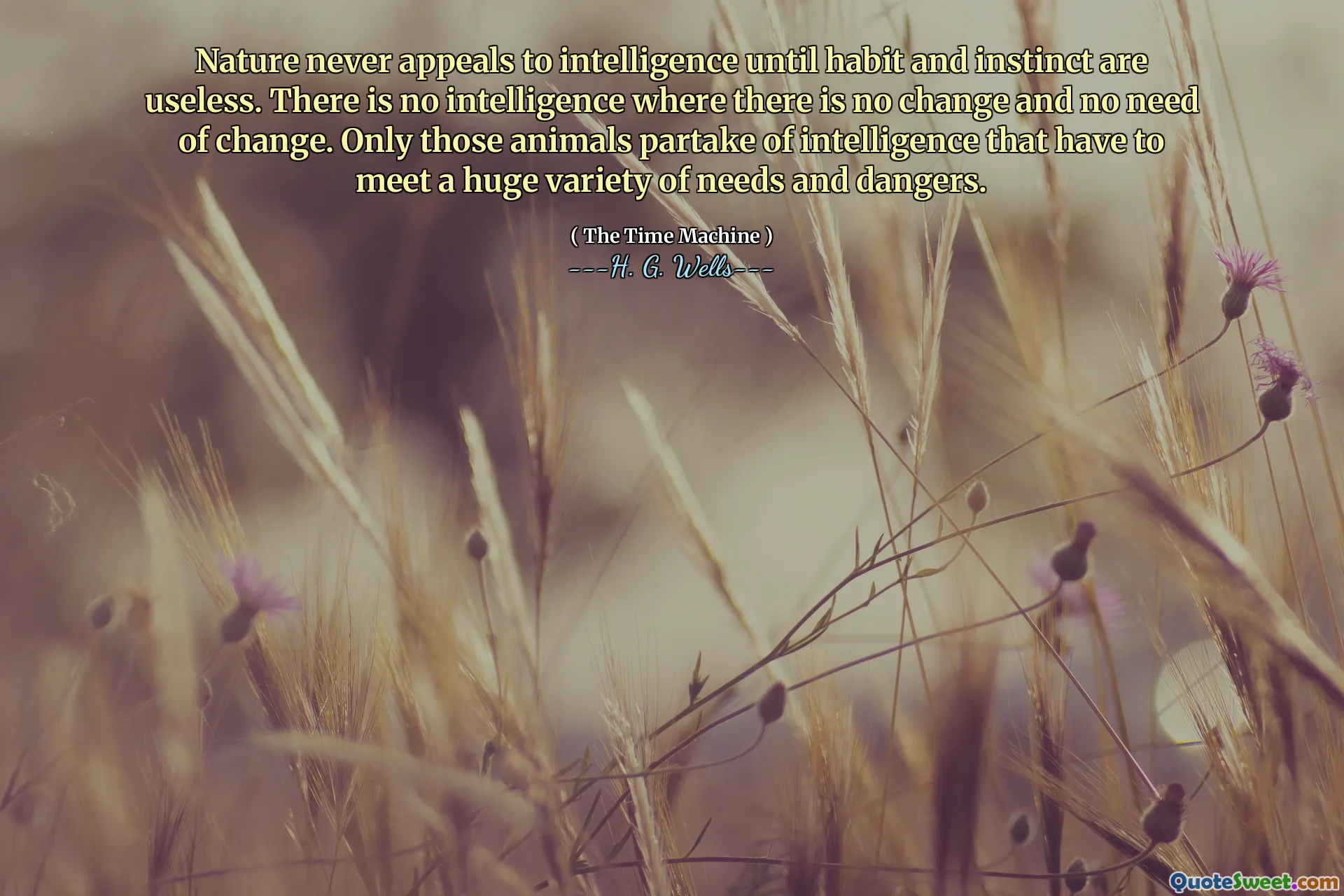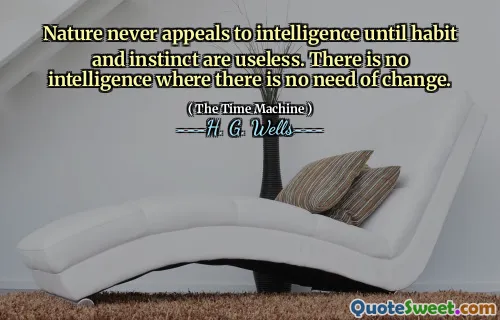
Nature never appeals to intelligence until habit and instinct are useless. There is no intelligence where there is no change and no need of change. Only those animals partake of intelligence that have to meet a huge variety of needs and dangers.
In "The Time Machine," H. G. Wells suggests that nature typically does not rely on intelligence until instincts and habitual behaviors become ineffective. This indicates that without challenges or the necessity for adaptation, intelligence is not engaged or required. It portrays a world where creatures operate primarily on instinct until faced with situations that demand a different approach.
Wells argues that true intelligence emerges in the presence of diverse challenges and threats. Animals that confront a wide range of needs and dangers are those that develop and exhibit intelligence. This insight points to the idea that adaptability is crucial for survival, emphasizing that intelligence is linked to the ability to change in response to varying circumstances.











